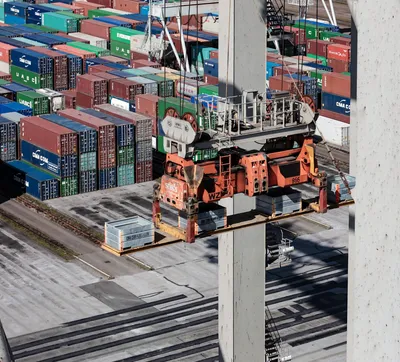The Importance of Efficient Logistics in International Trade
In the dynamic world of international trade, logistics play a crucial role in ensuring the smooth movement of goods across borders. Efficient logistics systems can significantly reduce costs, minimize delays, and enhance overall customer satisfaction.
Choosing the Right Shipping Methods
Understanding Shipping Options
Your choice of shipping methods can greatly influence the efficiency of your import-export operations. Options include air freight, ocean shipping, and land transportation. Each has its advantages and disadvantages, depending on the nature of your goods, destination, and budget.
Evaluating Shipping Costs
Shipping costs can be a significant portion of your overall export-import expenses. Evaluate different carriers and logistics companies to find the most cost-effective solution without compromising on delivery times.
Managing Customs and Regulatory Compliance
Staying Informed on Regulations
Regulations can vary significantly between different countries and products. Staying informed of these regulations is crucial for avoiding costly delays and penalties. Make sure to regularly review updates from relevant authorities and consult with compliance experts if necessary.
Ensuring Accurate Documentation
Accurate and complete documentation is essential for smooth customs clearance. Errors can lead to delays, increased costs, or even the rejection of shipments.
Leveraging Technology for Better Logistics
Logistics Management Software
Investing in logistics management software can streamline your operations, from tracking shipments in real-time to managing inventory and automating documentation processes.
Utilizing Data Analytics
Data analytics can provide valuable insights into your logistics performance. By analyzing trends and metrics, you can identify bottlenecks, optimize routes, and enhance decision-making processes.
Building Relationships with Logistics Partners
Strong relationships with logistics partners can lead to more favorable terms, improved communication, and a more responsive supply chain. Regularly engage with your partners to understand their challenges and how you can work together to achieve mutual goals.
Conclusion
Optimizing logistics in international trade is a multifaceted process that requires careful planning and continuous improvement. By choosing the right shipping methods, managing compliance effectively, leveraging technology, and building solid partnerships, businesses can navigate the complexities of global trade with confidence.
Top Business Guides
Discover our most popular business guides, highly recommended by our readers for their valuable insights and expert advice.

Streamlining Your Import-Export Documentation Process

Cost-Effective Logistics Strategies for Small Businesses


